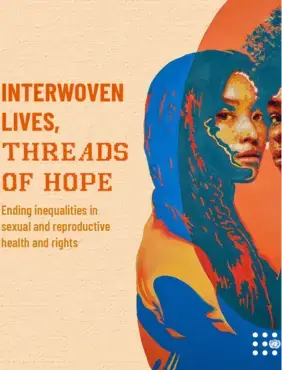Thirty years ago, governments around the world agreed that reproductive health and rights are foundation stones of global development – a groundbreaking consensus that paved the way for decades of progress. Since then, the global rate of unintended pregnancies has fallen by nearly 20 per cent globally. The number of women using modern contraceptive methods has doubled. Today at least 162 countries have adopted laws against domestic violence, and maternal deaths have decreased by 34 per cent since 2000.
This report contains many examples of programmes and efforts that have expanded access to, and uptake of, quality care, usually with interventions tailored by and for those most in need. To accelerate success, we will require more and better data, disaggregated to understand exactly who is being left behind, and collected with their input and safety assured.


